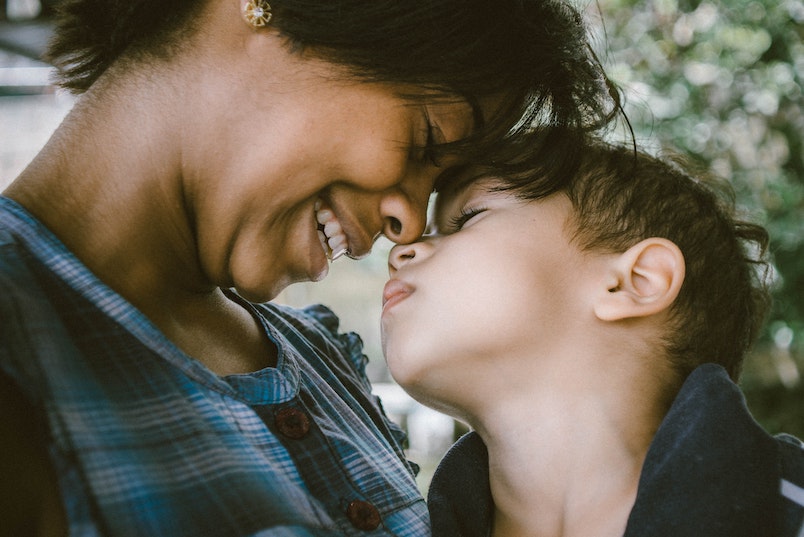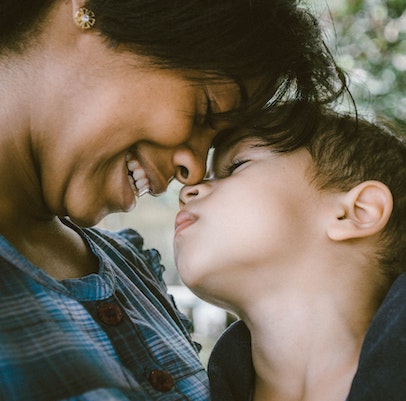
We can’t always protect our children from hard things and, in fact, it would be a disservice to do so. Letting our kids resolve low-stakes challenges on their own helps them to build self-esteem and resilience. But, watching them struggle is downright painful.
It’s tempting to swoop in and try to fix every problem, but instead, we as parents have an opportunity to teach them how to navigate life’s inevitable challenges so that they can develop their own healthy coping skills.
Since it’s easier said than done, we’re here to help you identify when your kids are experiencing high levels of stress and show you ways that you can support them through the toughest times.
Signs that kids are stressed
It’s easy to forget that being a kid can be stressful. I know as a parent of a six-year-old, I sometimes find myself thinking things like, “She has no bills and she gets to nap whenever she wants… What’s the problem?!?” But the truth is that being a kid isn’t all laughter and lollipops. They have to deal with big life changes along with the rest of us, plus add high-pressure exams, bullies, and social media to the mix, and it can be a highly stressful time.
While each child is unique, here are some of the more common signs that your kiddo is stressed:
- Irritability, anger, or frequent bad moods
- Difficulty sleeping
- Inability to relax
- Difficulty regulating emotions
- New or recurring fears
- Trouble concentrating
- Neglecting responsibilities, like homework or household chores
- Changes in appetite
- Getting sick more often
7 ways you can support stressed kids
- Go for a family walk. Getting outside and moving our bodies in nature is a huge stress-reducer. Plus, there is great power in walking conversations. When we are engaged in walking, without too much direct eye contact, it can feel easier and safer to talk about hard things. Try creating a ritual… maybe you go for a Friday early evening stroll to wind down from the school/work week or a Sunday morning walk together to get ready for the week ahead.
- Encourage healthy bedtime habits. Getting enough sleep is essential for kids’ physical and emotional wellness. We know it’s not always easy, but try to limit your child’s screen time at night and make sure they’re getting plenty of rest (9-12 hours for kids 6-12 yrs. and 8-10 hours for teens).
- Listen attentively. It can be so tempting to dive in with solutions and judgment when our kids are sharing their experiences, but next time they open up, try pausing to really hear them. Be patient and ask open, curious questions like, “And then what happened?” or “Oh, and how did that feel?” We all want to be heard and not lectured, so try to make space to truly hear what your little one is saying with compassion and understanding.
- Model resiliency. It can be hard for our kids to see that we’ve been through a lot of this stuff too, and ideally we’ve gained quite a bit of wisdom on the other side. Try relating by sharing your experience and how you overcame difficult situations like, “I remember in 7th grade, there was this girl who picked on me every morning. It was so hard to get through, but here’s how I eventually stood up for myself.”
- Help to reframe negative thinking patterns. Much like us, kids can get stuck in not-so-kind thought loops and it can help to model realistic reframing. The next time your child says something like “I’m bad at sports,” try getting curious about what’s going on for them at the moment. Instead of automatically responding with purely positive praise like, “Oh come on, you’re great at sports,” consider reminding them of times that they worked hard and made progress.
- Practice mindfulness together. It’s unrealistic to expect our kids to become little yogis, but it’s never too early to start demonstrating mindfulness. From taking a few deep, calming breaths together (here’s a quick guided meditation to try together) to simply stopping to notice the yummy smell of cookies baking, little moments of being present together can have a big impact.
- Prioritize your own self-care. Trust me, I know that there is nothing more annoying than having someone preach “ self-care” when you’re an exhausted and overwhelmed parent. But, taking care of ourselves allows us to more fully show up for others. Maybe start by adding 5 minutes of self-care into your routine – a quick meditation, a moment to journal, or a time to just put on a feel-good playlist and chill out.
Watching our kids struggle is the pits, so remember to be patient with yourself as you navigate how to best help them. At the end of the day, just being there to offer a listening ear and a supportive hug will go a long way. Sure, our kids will always encounter difficult times, but with our help, they’ll become better equipped to navigate all that life brings their way.

By Katie Nave, Copywriter at Sanvello
Katie is a writer and mental health advocate living in Brooklyn, New York. Her essays have been featured in publications including Newsweek, Elle, Glamour, Business Insider, and Motherly. She has served as a producer for the National Women’s March and worked with organizations like Girls Inc. She is currently the Copywriter at Sanvello and you can follow her on Instagram: @kathryn.e.nave.
